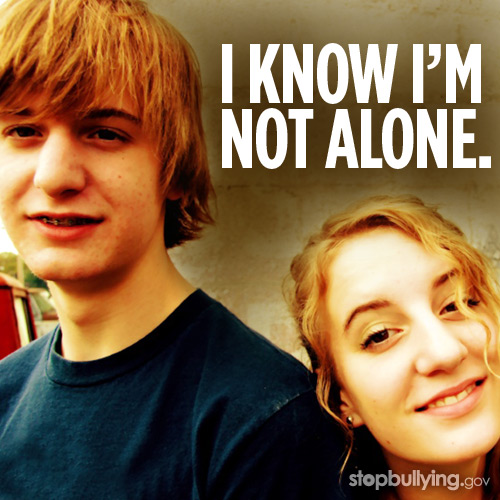
"BULLYING IS A NATURAL PART OF CHILDHOOD."
FACT:: There is nothing natural about being bullied. Bullying is often considered a
a normal part of childhood because it is such a common experience. Physical or emotional
aggression toward others should not be tolerated as a normal part of childhood.
"WORDS WILL NEVER HURT YOU."
FACT: Even though words don't leave bruises or broken bones, studies have shown they may
leave deep emotional scars that can have lifelone implications. Children learn at a very
early age that words can hurt other children.
"SOME PEOPLE DESERVE TO BE BULLIED."
FACT: No child's behavior justifies being hurt or harmed in any manner.
All children deserve to be treated with respect and consideraton.
BULLYING WILL MAKE KIDS TOUGHER."
FACT: Bullying does not make someone tougher. Research has shown it often has the
'
opposite effect and lowers a child's sense of self - esteem and self-worth. Bullying often
creates fear and increases anxiety for a child.
"TELLING A TEACHER ABOUT BULLYING IS TATTLING."
FACT: Children need to know the difference between tattling and telling. Tattling is done
to get someone in trouble, telling is done to protect someone. The secrecy of bullying only
serves to protect the bully and perpetuate the behavior.
"IT'S ONLY TEASING."
FACT: Most children are occasionally teased. When teasing does not hurt a child, it isn't
considered bullying. Teasing becomes bullying when a child does not understand that he or she
is being teased and the intent of the action is to hurt or harm.
"BOYS WILL BE BOYS."
FACT: The implications here is that bullying is acceptable, and that it is normal for boys to
be physically or verbally aggressive. However, research indicates aggression is a learned
behavior, not a natural repsonse.
"GIRLS DON'T BULLY."
FACT: Research shows that girls can and do bully. While they do not physically bully targets as
often as boys, they will often use verbal and emotional bullying. Bullying for girls escalates
during the middle school years.
"CHILDREN AND YOUTH WHO ARE BULLIED WILL ALMOST ALWAYS TELL AN ADULT."
FACT: Adults are often unaware of bullying in part because many children and youth don't report it.
Most studies find that only 25 to 50 percent of bullied children talk to an adult about the situation.
Boys and older children are less likely than girls and younger children to tell adults about bullying.
Children may be reluctant to report bullying because they fear retaliation by the children doing the
bullying. They also may fear that adults won't take their concerns seriously or will deal inappropriately
with the situation.
"BULLYING IS EASY TO RECOGNIZE."
FACT: Physical bullying, such as hitting, kicking, and fighting, is easy to recognize since this
type of behavior is overt. It is the covert bullying - such as shunning, alienating, and leaving children
outon purpose - that is much harder to detect.
"IGNORING BULLYING WILL MAKE IT GO AWAY."
FACT: This solution sounds easy, but ignoring the problem will not make bullying go away. In fact, it
often makes the situation worse, because it sends a message that the target is unable to do anything about the
behavior and gives the person bullying emotional satisfaction.
"CHILDREN AND YOUTH WHO BULLY ARE MOSTLY LONGERS WITH FEW SOCIAL SKILLS."
FACT: Children who bully usually do not lack friends. In fact, some research finds that these
children have larger friendship networks than other children. Importantly, they usually have at least
a small group of friends who support and encourage their bullying behavior. Children who bully also
generally have more leadership skills than targets of bullying or children not involved in bullying.
"BULLIED KIDS NEED TO LEARN HOW TO DEAL WITH BULLYING ON THEIR OWN."
FACT: Some children have the confidence and skills to stop bullying when it happens, but many do not.
Moreover, children shouldn't be expected to deal with bullying on their own. Bullying is a form of victimization
and peer abuse. Just as society does not expect victims of other types of abuse to "deal with the situation on
their own," we should not expect this from targets of bullying. Adults have critical roles to play in helping to
stop bullying, as do other children who witness or observe bullying.
"MOST CHILDREN AND YOUTH WHO OBSERVE BULLYING DON'T WANT TO GET INVOLVED."
FACT: The good news is that most children and youth think that bullying is "not cool" and feel that they should
do something if they see it happen. In a recent study of tweens (children ages 9 to 12), 56 percent said that they
usually either say or do something to try to stop bullying or tell someone who can help (Brown, Birch, & Kancherla, 2005).
These children and youth play a critical role in helping to stop bullying.